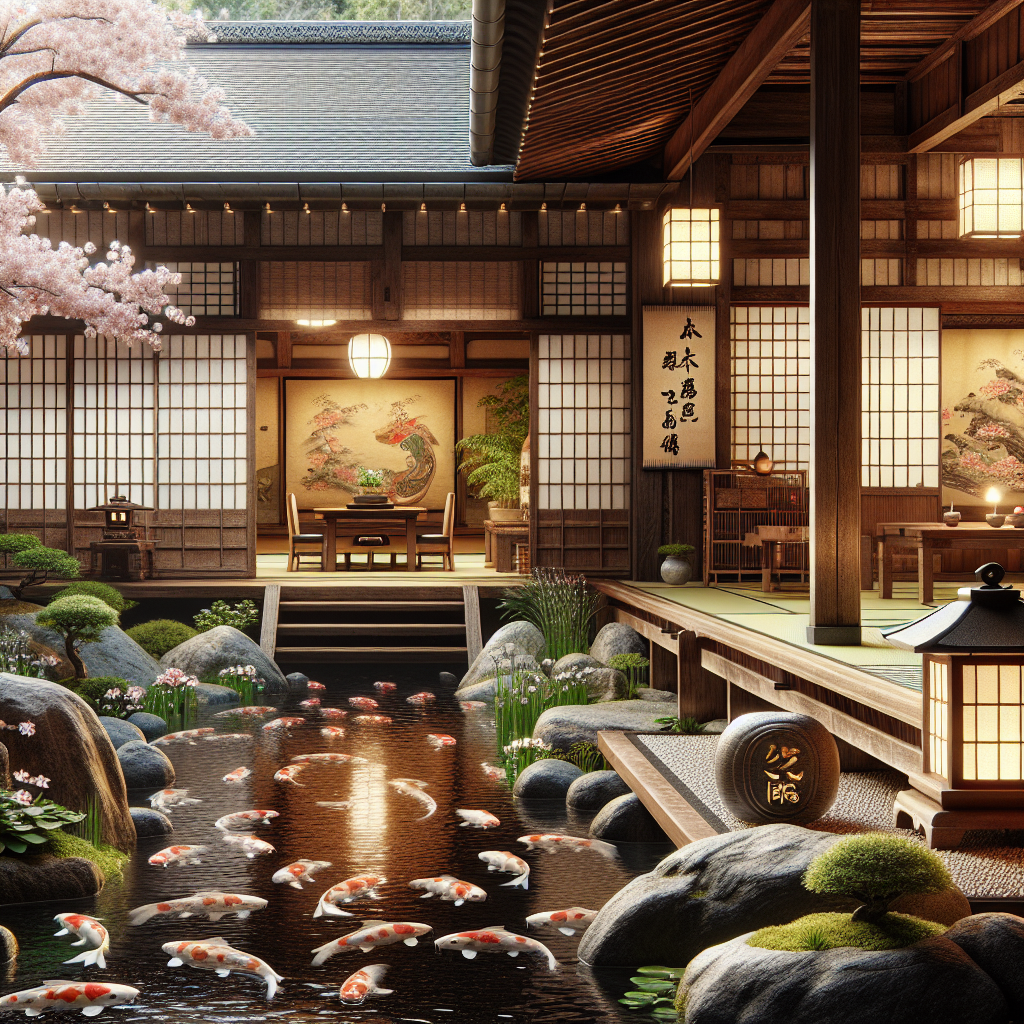Ryokan Revelries: Embracing Traditional Japanese Hospitality
In the heart of Japan, away from the neon lights and the bustling city streets, lies a serene, enchanting world where time slows down, and traditional values are cherished. This world is best experienced through a stay in a ryokan, a type of traditional Japanese inn that has been part of the country’s culture for centuries. Ryokans offer more than just accommodation; they provide a gateway to understanding the deep-rooted hospitality, customs, and aesthetic sensibilities of Japan. Let’s embark on a journey to discover the charm of ryokan revelries and how they encapsulate the essence of Japanese hospitality.
The Essence of a Ryokan Experience
Ryokans are distinguished by their commitment to Japanese tradition, seen in their architecture, design, and the services they offer. Unlike western hotels, where the focus might be on luxury or convenience, ryokans prioritize an immersive cultural experience, enveloping guests in the warmth and simplicity of Japanese hospitality.
Architecture and Design
The architecture of a ryokan is a nod to Japan’s rich history, often featuring sliding shoji doors, tatami mat floors, and wooden baths. Rooms are minimally furnished to promote tranquility and reflection. The design is rooted in the principle of harmony with nature, with many ryokans boasting gardens, open-air baths (onsen), and spaces that blur the lines between the indoors and the outdoors.
Omotenashi: The Spirit of Hospitality
At the heart of the ryokan experience is ‘Omotenashi’, the Japanese approach to hospitality that anticipates and fulfills guests’ needs without being asked. This philosophy ensures that every aspect of your stay is meticulously cared for, from the moment you are welcomed with a cup of green tea until you depart. The staff’s attentiveness and the personalized care offered epitomize the dedication to guest satisfaction.
Culinary Delights
Dining in a ryokan is an adventure for the palate. Meals are an elaborate affair, often served in your room or in designated dining areas. Traditional kaiseki dinners, a multi-course meal featuring seasonal and regional specialties, showcase the artistry and finesse of Japanese cuisine. Each dish is a testament to the chef’s skill, with ingredients that are carefully selected and prepared to reflect the current season.
Cultural Immersion
Staying at a ryokan is an opportunity to immerse yourself in Japanese culture. Guests are encouraged to wear yukata (light cotton kimono) during their stay, participate in tea ceremonies, and enjoy the communal baths. These experiences, among others, offer a glimpse into the lifestyle and customs that have shaped Japanese culture.
Relaxation and Reflection
The tranquil atmosphere of ryokans offers a respite from the hectic pace of modern life. Whether it’s soaking in an onsen, meditating in a zen garden, or simply enjoying the quietude of your room, ryokans provide a space for relaxation and reflection. This emphasis on inner peace and connectivity with nature is a cornerstone of the ryokan experience.
FAQs about Staying in a Ryokan
Q: What should I bring to a ryokan?
A: While ryokans provide most of what you’ll need, including toiletries and yukata, it’s a good idea to bring your own personal items and any specific toiletries you can’t do without. If you plan to use the onsen, consider bringing a swimsuit, though it’s worth noting that many onsens are enjoyed without clothing.
Q: Are ryokans suitable for families?
A: Absolutely. Many ryokans cater to families and offer rooms that can accommodate group stays. Some also have private onsens for a more family-friendly experience. However, it’s important to respect the tranquil atmosphere and ensure that children understand the cultural significance of the space.
Q: How do I choose the right ryokan?
A: Consider what you want from your stay. Are you looking for a rural retreat or a city experience? Is having an onsen important to you? Do you have dietary restrictions that need to be accommodated? Researching and reading reviews can help you find a ryokan that matches your preferences.
Q: What etiquette should I be aware of?
A: Ryokan etiquette includes removing your shoes upon entering, wearing your yukata correctly, and respecting the communal spaces. It’s also customary to tidy your room before checking out, folding your futon and placing your yukata neatly.
Q: How much does a stay at a ryokan cost?
A: Prices vary widely depending on the location, amenities, and the level of luxury. You can find budget-friendly options as well as high-end ryokans that offer the ultimate indulgence. It’s worth noting that the cost typically includes both lodging and meals, providing value for the immersive experience.
Conclusion
A stay in a ryokan is more than just a night’s lodging; it’s an invitation to slow down, savor the moment, and connect with the cultural heart of Japan. Through its architecture, cuisine, and unwavering commitment to hospitality, the ryokan experience enriches and delights, offering a unique glimpse into the soul of Japanese tradition. So, when you travel to Japan, consider stepping into the serene world of ryokans and embrace the unparalleled hospitality that awaits.
